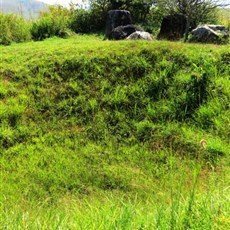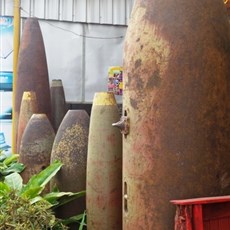There are ten unexploded bombs in the fields and forests
of Laos for every man, woman and child in the country. Ten unexploded bombs per
person.
Between 1964 and 1973, the US carried out 580,000 bombing
missions over Laos, dropping over two million tons of ordnance, the equivalent
of one planeload of bombs every eight minutes every day for nine years. These
astounding statistics make Laos the most heavily bombed country per capita in
history.
Many of the bombs dropped on Laos were cluster bombs,
which consist of a canister filled with hundreds of small bombs released as the
cluster bomb falls. The cluster bombs unleashed on Laos had a 30% failure rate,
leaving around 80 million unexploded bomblets waiting for the unwary. The Lao
call them “bombies”. There have been over 20,000 bomb-related deaths or
injuries in Laos since the bombs stopped falling in 1973; 40% of the victims
are children.
The bombings were part of America’s “Secret War” to
support the Royal Lao government in their civil war against the communists, and
to prevent the north Vietnamese moving supplies and people along the Ho Chi
Minh Trail within Laos.
According to legaciesof war.com: “Between 1995 and 2013,
the U.S. contributed on average $3.2M per year for UXO [unexploded ordnance] clearance
in Laos; the U.S. spent $13.3M per day (in 2013 dollars) for nine years bombing
Laos.”
Aside from the US, the Mines Advisory Group (MAG) and
others are active in Laos, clearing contaminated fields and villages, but face a
mammoth task.
Before we visited Laos, we knew a little about this
terrible legacy, but I had not fully understood the negative economic impact of
UXO. People are afraid to clear new fields for planting, to dig irrigation
ditches and to forage or hunt in the forests. The MAG Visitor Centre in Phonsavan
tells poignant stories of changing peoples’ lives by making their environment
safe to farm. In many cases, newly cleared fields make it possible for families
to feed themselves year round for the first time by growing an additional cash
crop to supplement their previously meagre rice harvest.

Bomb crater - Phonsavan

Bombs outside bar - Phonsavan